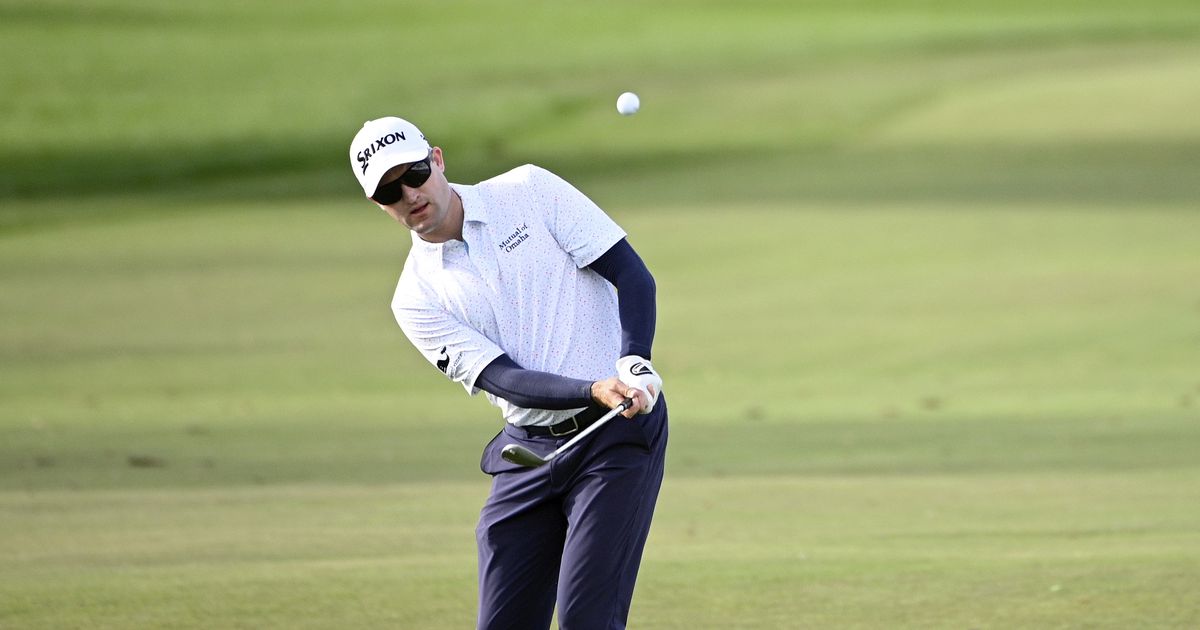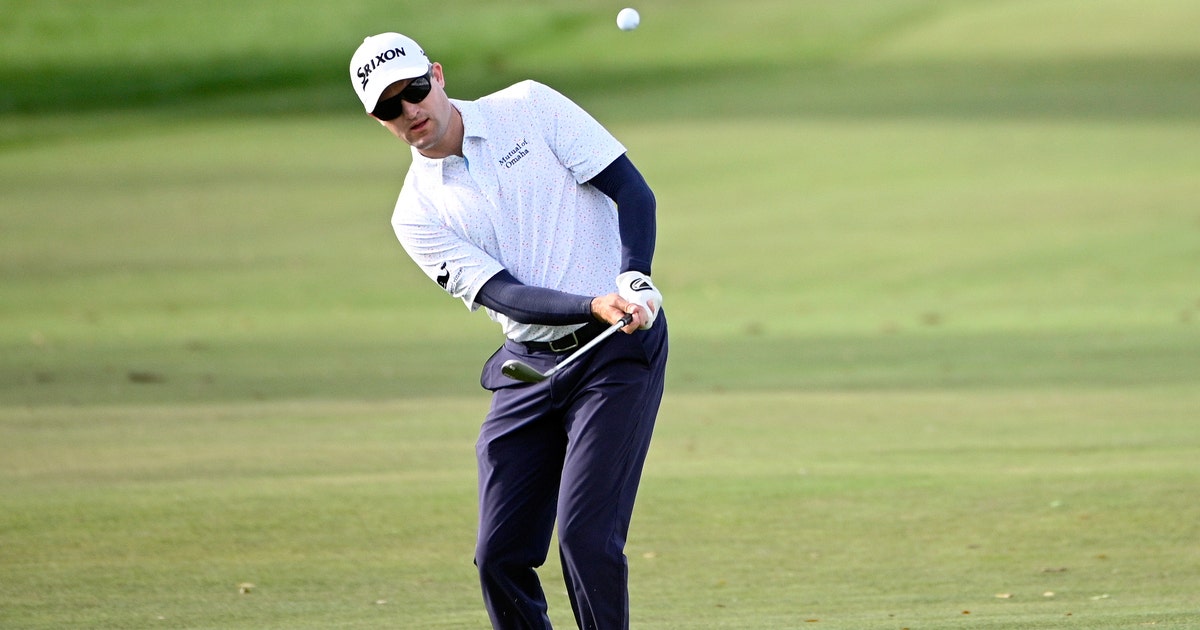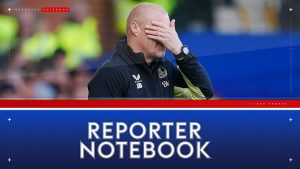TV production does its part in conservative return to golf


Pressure wasn’t limited to a closest-to-the-pin contest for six skins worth $1.1 million that Rory McIlroy won to wrap up the TaylorMade Driving Relief exhibition.
Imagine trying to produce the first live golf on TV in two months with only six cameras on the course, using a bonded cellular network to send images 250 miles away instead of radio frequency to a truck stationed right there at Seminole.
And if that wasn’t enough, the plane providing overhead shots had to leave at the end because it was low on fuel.
“It was vastly different from any PGA Tour broadcast on network TV,” said Greg Hopfe, executive producer of PGA Tour Entertainment. “And we did this without a single TV truck.”
It could be maddening at times.
Using bonded cellular meant a second-and-a-half delay for the play-by-play announcer (Rich Lerner) and the NBC analysts (Paul Azinger and Gary Koch) to see the video in St. Augustine, Florida. The Top Tracer technology made it impossible to sync, which is why the click of contact was heard when players were at the top of their swings.
TV trucks in the compound have a person who can shade the camera, making it easier to pick up the ball in flight.
“This technology doesn’t allow for it,” Hopfe said. “We were hoping for a blue sky the entire day. When it goes up to a white sky, we struggled to keep it in the frame. That was a big challenge. We lost some golf balls. The good things is we had the plane up there.”
Except at the end.
The plane provided the magnificent overhead shots of Seminole, the fifth star of the charity match.
“We got to 18, there’s a carryover and we’re about to go to a playoff,” Hopfe said. “I look over at the monitor of the plane and it’s in color bars. It’s running out of fuel. It’s done for the day. I get on the radio and said, ‘Get a second camera to 17 green.’ We hustled back and got there before the players.”
The telecast ended at 6:33 p.m., unusually long for any brand of golf at Seminole. That, too, was related to the production. With so few cameras — a typical PGA Tour event on network TV has about 20 cameras — players at times were held in place to allow the cameras to get in position.
It all was done with a conservative return to golf, following CDC guidelines and keeping contact minimal. There were no caddies, only two rules officials and no fans.
Everyone who worked the event — 28 people at Seminole, 23 people at PGA Tour Entertainment offices in St. Augustine — were tested for the new coronavirus. They chose not to build scaffolding, which would have allowed the holes to be seen easier on putts, because the construction crew would have required tests, too.
“We wanted to keep the footprint as small as possible,” Hopfe said.
The biggest challenge was using bonded cellular, and perhaps the tour has Steph Curry to thank for that.
The tour first tried it out in 2018, the second time the Golden State Warriors guard played a Korn Ferry Tour event outside San Francisco. The tour later used bonded cellular, which costs less money to operate, for “PGA Tour Live” at six fall events last year and a Korn Ferry Tour event in the Bahamas at the start of this year.
TRAVELING MAN
Assuming golf resumes on schedule, Russell Knox plans to play three straight weeks and drive 3,000 miles.
Players will have a designated hotel during the Charles Schwab Challenge in Fort Worth, Texas, but it makes a lodging exception for RVs. Families are not allowed at the tournaments. But because of the RV, Knox’s wife, Andrea, can travel with him.
There’s one other consideration.
“Do I want to drive 1,000 miles between tournaments? No,” Knox said. “I don’t really want to fly. But the best part with the RV is being able to cook your own food. We haven’t eaten out one time since this started. We’ve cooked breakfast, lunch and dinner every day. It’s nice to have that ability.”
As for the travel? It’s roughly 1,000 miles from Ponte Vedra Beach, Florida, to Fort Worth, and then 1,000 to Hilton Head for the RBC Heritage, and just under 1,000 miles to Cromwell, Connecticut, for the Travelers Championship.
But with no pro-ams, Knox pointed out, “What’s the rush?”
RORY DOWN UNDER
Rory McIlroy loves the sand belt in Australia so much that he contemplated going to the Australian Open at Kingston Heath before the COVID-19 pandemic wiped out three months of the season.
The first Presidents Cup he watched was last year’s because it was at Royal Melbourne.
He was treated to a performance of sheer precision by Tiger Woods, the U.S. playing captain who won all three of the matches he played in another American victory.
“The way the golf course played, he really showed why he is the player he is,” McIlroy said last week on the McKellar Journal podcast. “I feel like he definitely distanced himself from the rest of the players who played there because of how precise he was with his iron play and the different shots he hit.
“If every golf course were like Royal Melbourne, I think he’d be well over 100 wins.”
THIS WEEK IN HISTORY
Paula Creamer was only 18 and an LPGA Tour rookie when on May 22, 2005, she birdied the last hole to win the Sybase Classic. That made her the youngest winner of a multiple-round tournament in LPGA history, a record since broken.
What made the occasion different is Creamer then returned to Florida five days later to get her high school diploma.
Two months later, she won the Evian Masters by eight shots and became the youngest LPGA millionaire. And her biggest victory didn’t involve any money. She beat Laura Davies, 7 and 5, in the Solheim Cup as the Americans won at Crooked Stick.
DIVOTS
The R&A has launched a funding package of 7 million pounds ($8.5 million) to help golf associations and other affiliated groups cope with the financial impact of the COVID-19 pandemic. “We have a responsibility to do what we can to help in such a crisis,” R&A chief Martin Slumbers said. … On his bucket list of golf courses Rory McIlroy wants to play, he hopes to knock out one of them later this summer: Winged Foot, site of the U.S. Open. … Justin Thomas will get a crack at television for Turner Sports during the charity match involving Tiger Woods, Phil Mickelson, Peyton Manning and Tom Brady.
STAT OF THE WEEK
In the nine times Tiger Woods and Phil Mickelson have played together in the final round on the PGA Tour, Mickelson had the lower score five times and won twice. Woods had the lower score three times and won all three. They tied the other time, both shooting 75 in the 1997 PGA Championship at Winged Foot.
FINAL WORD
“It’s the greatest golf that’s ever been played.” — Rory McIlroy, on the 10-month span when Tiger Woods became the only player to hold all four professional majors at the same time.





